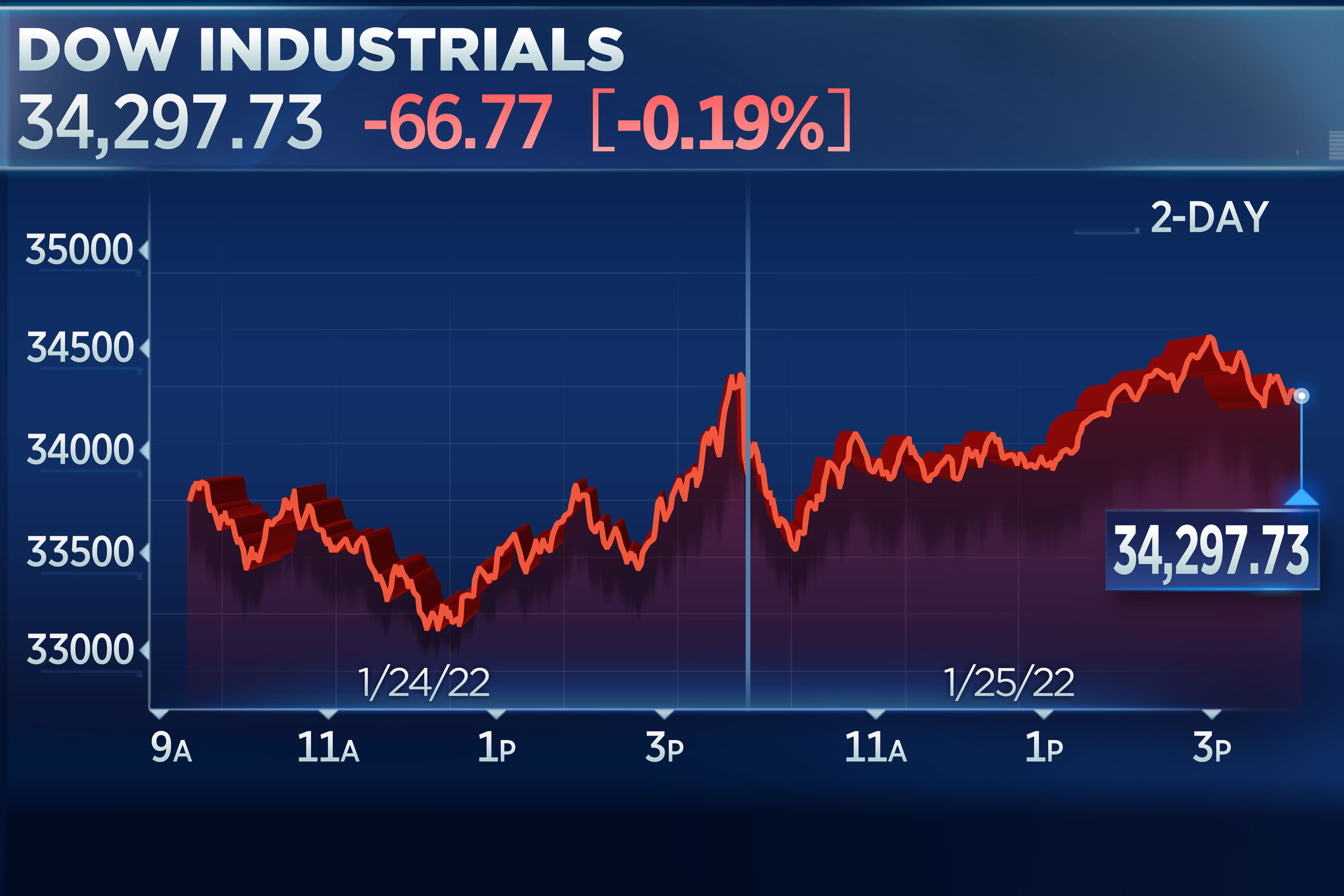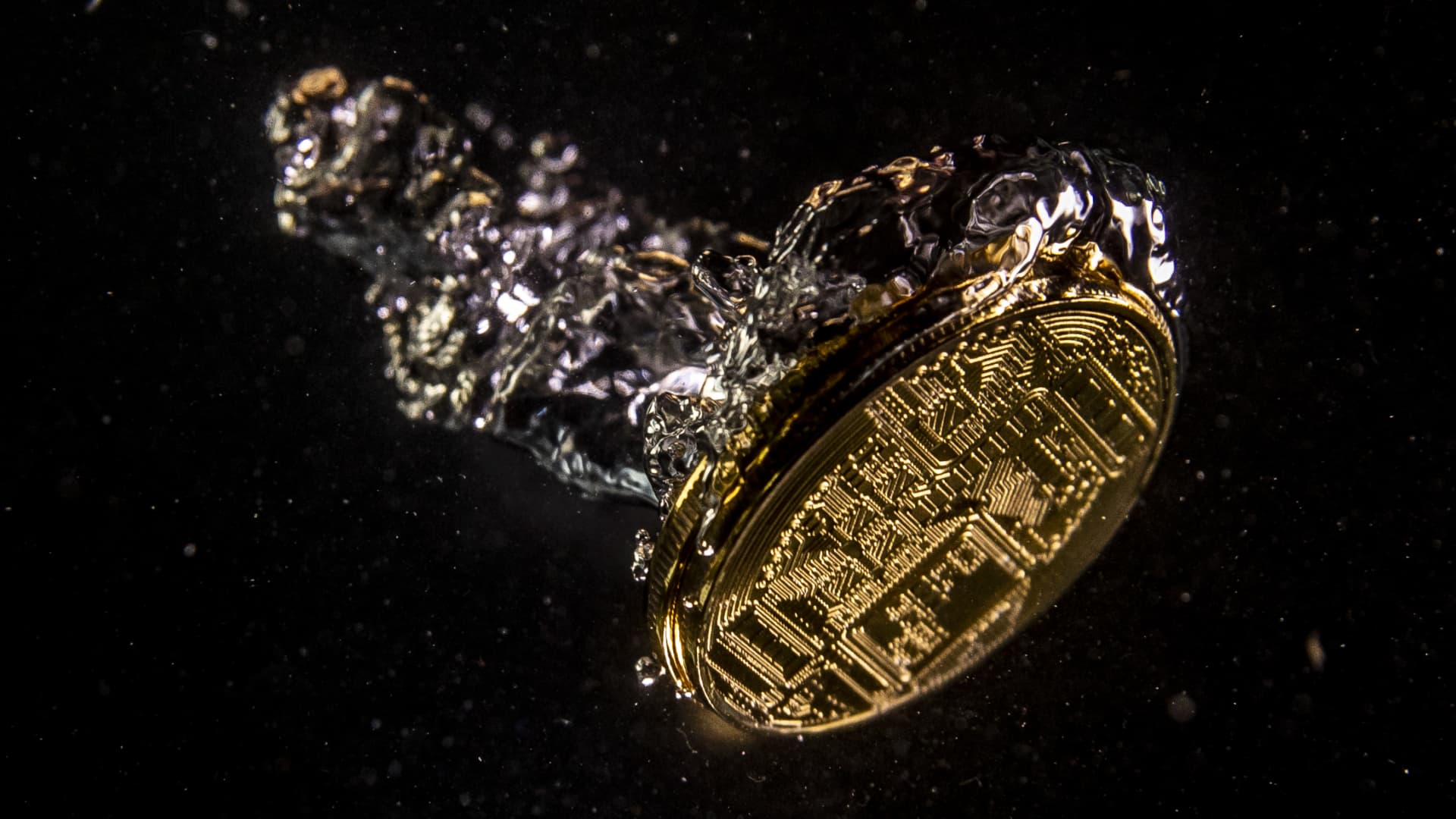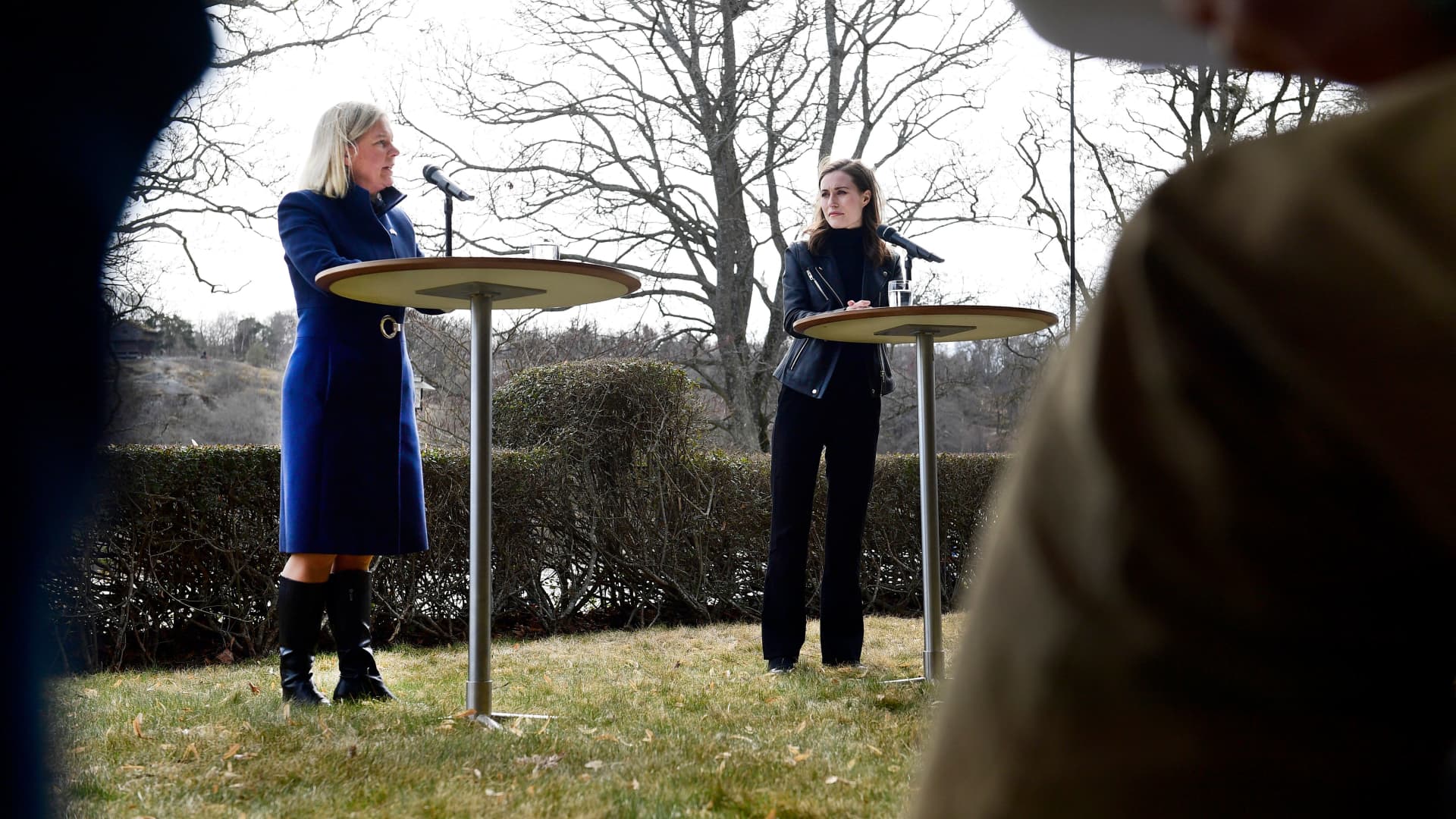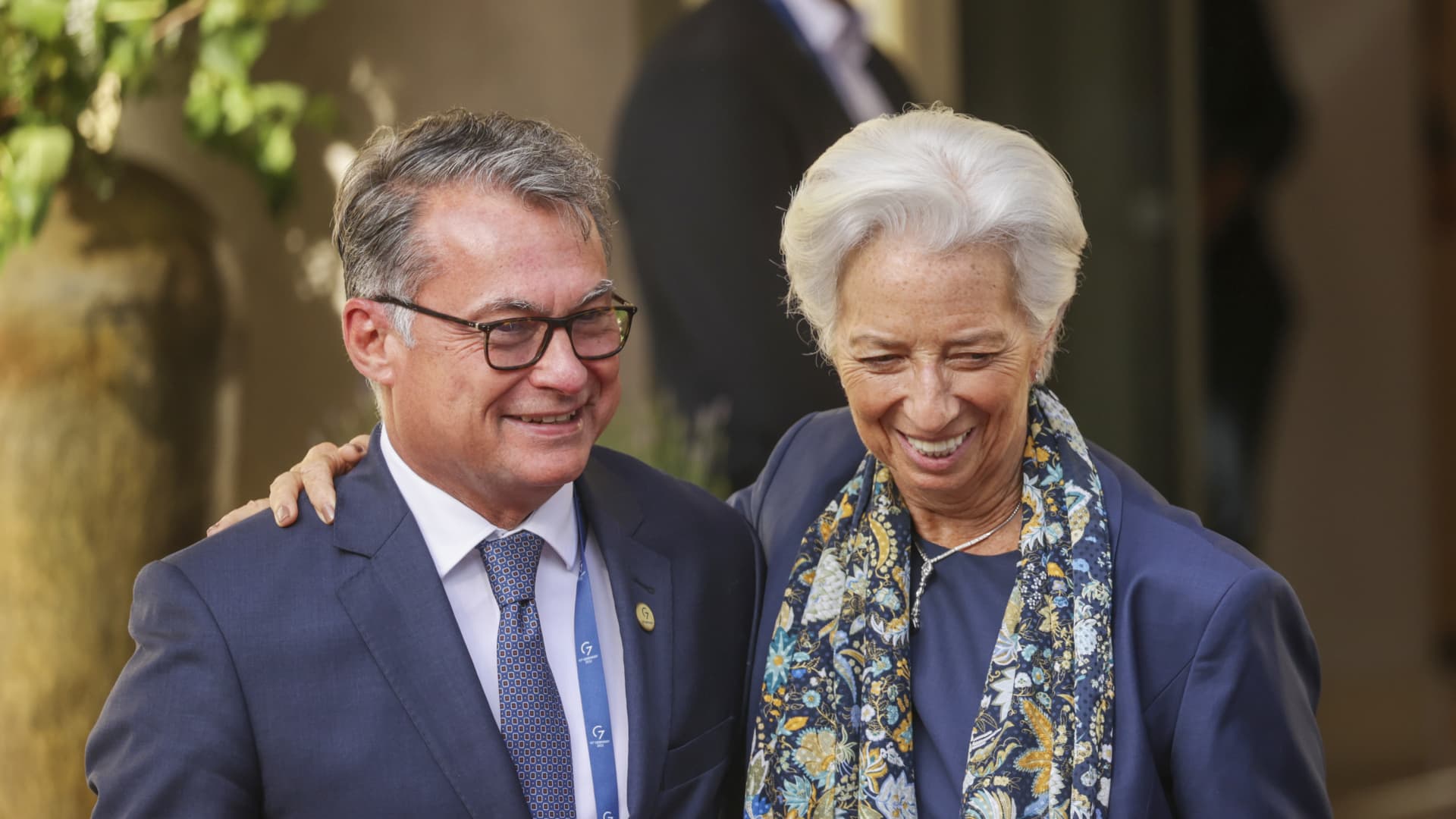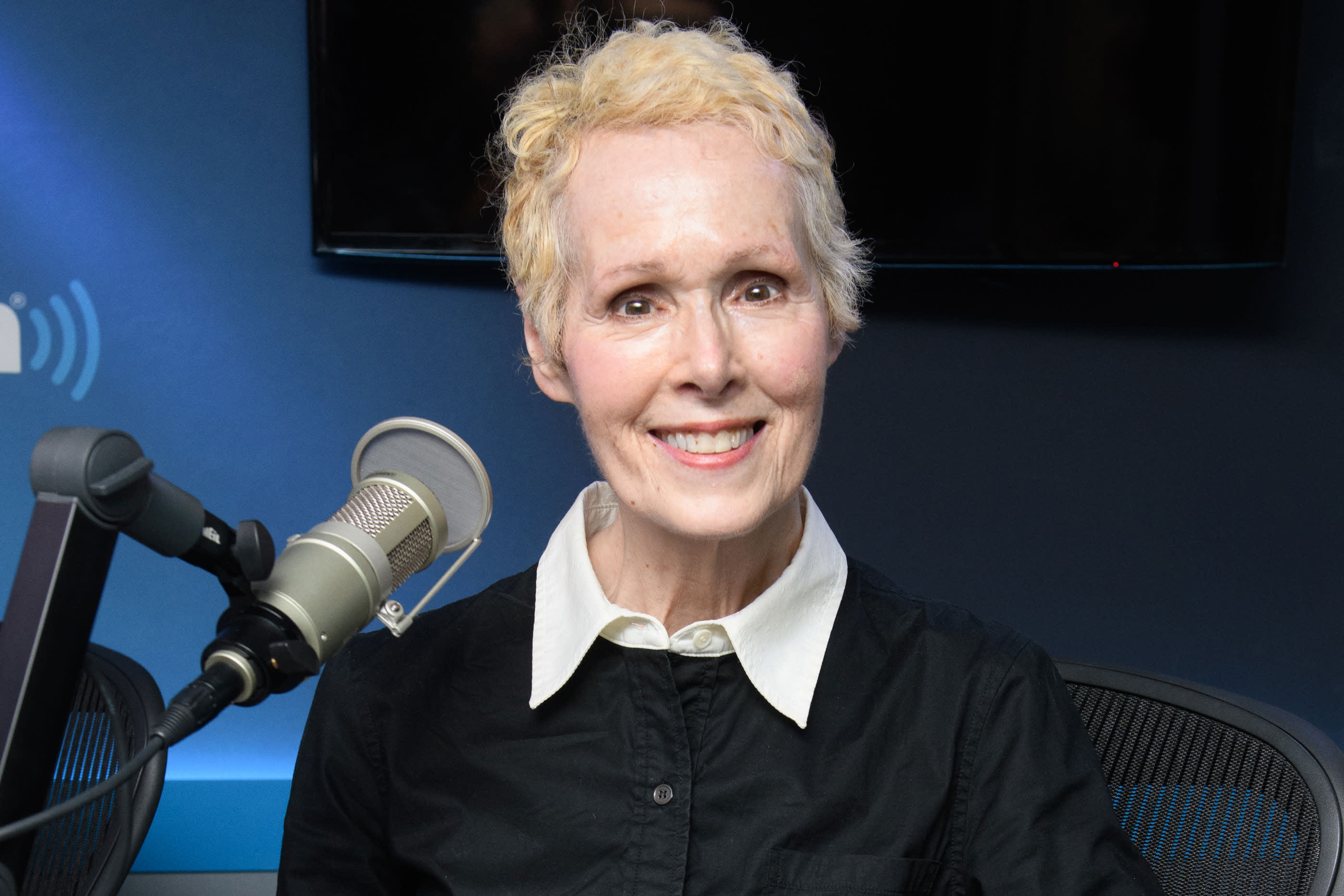'Losing is not an option': Putin is 'desperate' to avoid defeat in Ukraine as anxiety rises in Moscow
Moscow faces what's likely to be months more fighting, military losses and potential defeat.
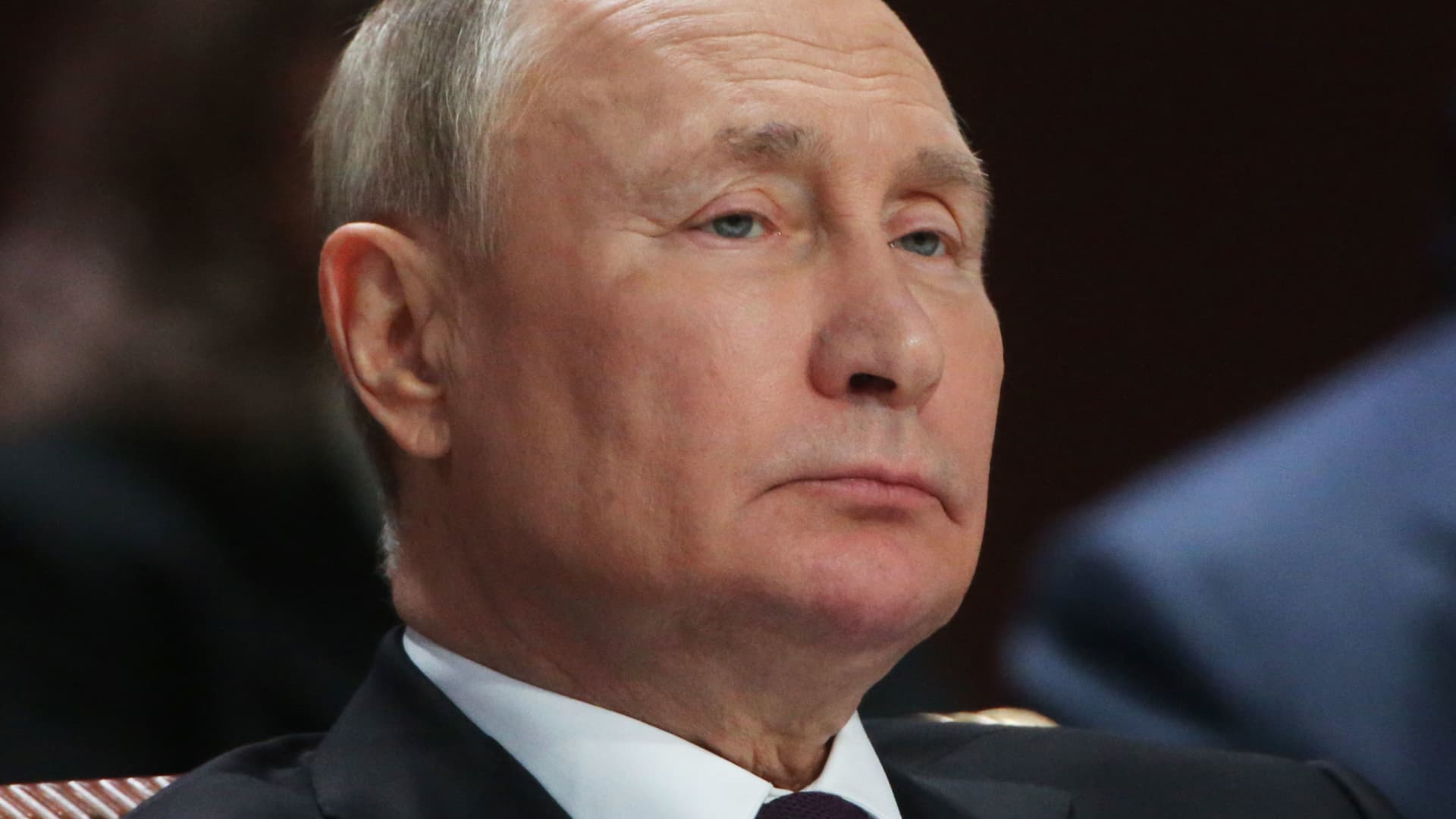
Russian President Vladimir Putin attends the Collective Security Treaty Organization (CSTO) Leaders meeting in Yerevan on November 23, 2022.
Karen Minasyan | Afp | Getty Images
When Russia invaded Ukraine in February, nobody in President Vladimir Putin's inner circle is believed to have expected the war to last more than a few months.
As the weather turns cold once again, and back to the freezing and muddy conditions that Russia's invading forces experienced at the start of the conflict, Moscow faces what's likely to be months more fighting, military losses and potential defeat.
That, Russian political analysts say, will be catastrophic for Putin and the Kremlin, who have banked Russia's global capital on winning the war against Ukraine. They told CNBC that anxiety was rising in Moscow over how the war was progressing.
"Since September, I see a lot of changes [in Russia] and a lot of fears," Tatiana Stanovaya, a nonresident scholar at the Carnegie Endowment for International Peace and founder and head of political analysis firm R.Politik, told CNBC.
"For the first time since the war started people are beginning to consider the worst-case scenario, that Russia can lose, and they don't see and don't understand how Russia can get out from this conflict without being destroyed. People are very anxious, they believe that what is going on is a disaster," she said Monday.
Putin has tried to distance himself from a series of humiliating defeats on the battlefield for Russia, first with the withdrawal from the Kyiv region in northern Ukraine, then the withdrawal from Kharkiv in northeastern Ukraine and recently, the withdrawal from a chunk of Kherson in southern Ukraine, a region that Putin had said was Russia's "forever" only six weeks before the retreat. Needless to say, that latest withdrawal darkened the mood even among the most ardent Putin supporters.
Russian President Vladimir Putin on a screen at Red Square as he addresses a rally and a concert marking the annexation of four regions of Ukraine — Luhansk, Donetsk, Kherson and Zaporizhzhia — in central Moscow on Sept. 30, 2022.
Alexander Nemenov | Afp | Getty Images
Those seismic events in the war have also been accompanied by smaller but significant losses of face for Russia, such as the attack on the Crimean bridge linking the Russian mainland to the Ukrainian peninsula annexed by Russia in 2014, attacks on its Black Sea Fleet in Crimea and the withdrawal from Snake Island.
Pro-Kremlin commentators and military bloggers have lambasted Russia's military command for the series of defeats while most have been careful not to criticize Putin directly, a dangerous move in a country where criticizing the war (or "special military operation" as the Kremlin calls it) can land people in prison.
Another Russian analyst said Putin is increasingly desperate not to lose the war.
"The very fact that Russia is still waging this war, despite its apparent defeats in March [when its forces withdrew from Kyiv], indicate that Putin is desperate to not lose. Losing is not an option for him," Ilya Matveev, a political scientist and academic formerly based in St. Petersburg, told CNBC on Monday.
"I think that already everyone, including Putin, realized that even tactical nuclear weapons will not solve the problem for Russia. They cannot just stop [the] military advances of [the] Ukrainian army, it's impossible. Tactical weapons ... cannot decisively change [the] situation on the ground."
Putin more 'vulnerable' than ever
Putin is widely seen to have misjudged international support for Ukraine going in to the war, and has looked increasingly fallible — and vulnerable — as the conflict drags on and losses mount.
Ukraine says more than 88,000 Russian troops have been killed since the war started on Feb. 24, although the true number is hard to verify given the chaotic nature of recording deaths. For its part, Russia has rarely published its version of Russian fatalities but the number is far lower. In September, Russia's defense minister said almost 6,000 of its troops had been killed in Ukraine.
"From the moment on 24th of February, Putin launched this war, he has become more vulnerable than he has ever been," R.Politik's Stanovaya said.
"Every step makes him more and more vulnerable. In fact, in [the] long term, I don't see a scenario where he could be a winner. There is no scenario where he can win. In some ways, we can say that he is politically doomed," she said Monday.
"Of course, if tomorrow, let's imagine some fantasy that Zelenskyy says, 'OK, we have to capitulate, we sign all the demands by Russia,' then in this case we can say that Putin can have a little chance to restore his leadership inside of Russia, but it will not happen."
"We can expect new failures, new setbacks," she said.
'Putin will not give up'
While the war has certainly not gone Moscow's way so far — it's believed that Putin's military commanders had led the president to believe that the war would only last a couple of weeks and that Ukraine would be easily overwhelmed — Russia has certainly inflicted massive damage and destruction.
Many villages, towns and cities have been shelled relentlessly, killing civilians and destroying civilian infrastructure and prompting millions of people to flee the country.
For those who have stayed, the recent Russian strategy of widespread bombing of energy infrastructure across the country has made for extremely hostile living conditions with power blackouts a daily occurrence as well as general energy and water shortages, just as temperatures plummet.
A destroyed van used by Russian forces, in Kherson, Ukraine, on Nov. 24, 2022.
Chris Mcgrath | Getty Images News | Getty Images
Russia has launched more than 16,000 missiles attacks on Ukraine since the start its invasion, Ukraine's defense minister, Oleksii Reznikov, said Monday, with 97% of these strikes aimed at civilian targets, he said via Twitter.
Russia has acknowledged deliberately targeting energy infrastructure but has repeatedly denied targeting civilian infrastructure such as residential buildings, schools and hospitals. These kinds of buildings have been struck by Russian missiles and drones on multiple occasions throughout the war, however, leading to civilian deaths and injuries.
As winter sets in, political and military analysts have questioned what will happen in Ukraine, whether we will see a last push before a period of stalemate sets in, or whether the current attritional battles, with neither side making large advances, continues.
One part of Ukraine, namely the area around Bakhmut in eastern Ukraine, where fierce fighting has been taking place for weeks, has recently been likened to the Battle of Verdun in World War I with Russian and Ukrainian troops inhabiting boggy, flooded trenches and the scarred landscape is reminiscent of the fighting on the Western Front in France a century ago.
Putin is unlikely to be deterred by any war of attrition, analysts note.
"As I see Putin, he would not give up. He would not reject his initial goals in this war. He believes and will believe in Ukraine that will give up one day, so he will not step back," R.Politik's Stanovaya said, adding that this leaves only two scenarios for how the war might end.
"This first one is that the regime in Ukraine changes, but I don't really believe [that will happen]. And the second one if the regime in Russia changes, but it will not happen tomorrow, it might take maybe one or two years," she said.
"If Russia changes politically, it will review and rethink its goals in Ukraine," she noted.
In the best scenario for Putin's regime, Stanovaya said Russia will be able "to secure at least a minimum of gains it can take from Ukraine." In the worst-case scenario, "it will have to retreat completely and with all [the] consequences for [the] Russian state and Russian economy."

 Kass
Kass 







